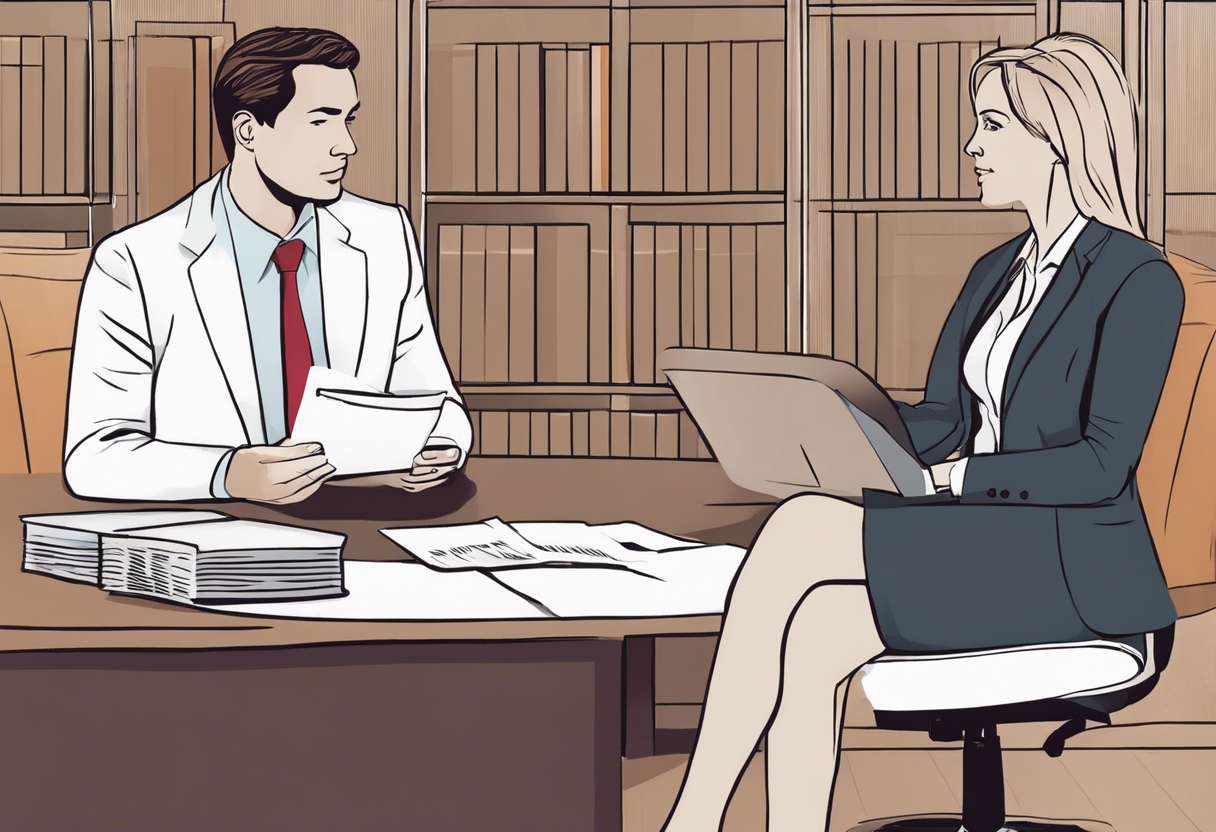Introduction
Navigating legal matters after an accident can be daunting. Finding the right accident lawyer to represent you is crucial to ensuring a favorable outcome. Knowing what questions to ask during your initial consultation can help you gauge their expertise, professionalism, and fit for your case. In this guide, we outline five essential areas to discuss with any accident lawyer, empowering you to make an informed decision about your legal representation.
1. Assessing the Lawyer’s Experience
Years of Practice
The lawyer’s length of practice can significantly influence their ability to handle your case effectively. Look for attorneys with years of experience dealing with accident cases to ensure they have encountered a variety of scenarios and legal challenges.
Specialization in Personal Injury Law
Ensure that the lawyer specializes in personal injury law. A focused expertise guarantees a deeper understanding of accident-related cases and the complexities involved.
Proven Track Record of Success
Ask about their history of successful cases. A strong track record indicates competence and the ability to secure favorable settlements or verdicts.
Trial Experience
While many cases settle out of court, having a lawyer with trial experience can be invaluable. Their readiness to take a case to court shows they’re prepared to advocate for your rights under any circumstances.
Client Testimonials and References
Review client feedback to gain insights into their communication style, responsiveness, and professionalism. Positive testimonials can build confidence in their ability to handle your case.
2. Understanding Legal Fees and Costs
Fee Structure
Most accident lawyers operate on a contingency fee basis, meaning they get paid only if you win. Confirm what percentage they will take from your settlement.
Upfront Costs
Clarify whether there are any initial fees or retainer costs. Some lawyers may cover all expenses upfront, recouping them only after a successful outcome.
Additional Costs
Ask about any extra expenses, such as court filing fees, expert witness costs, or charges for obtaining medical records. Knowing these in advance helps you budget effectively.
Estimate of Total Costs
Request an estimate for the total cost of your case. While exact figures may not be possible, experienced lawyers should provide a reasonable range.
Payment in Case of Loss
Discuss what happens if your case is unsuccessful. Ensure there are no unexpected financial obligations if you don’t win.
3. Evaluating Communication and Availability
Preferred Communication Channels
Ask whether the lawyer communicates via phone, email, or in-person meetings and how often you’ll receive updates.
Response Time
Understand their typical response times for client inquiries. Prompt communication is critical for a strong working relationship.
Support Staff and Accessibility
Determine if they have a support team to assist with your queries and ensure consistent communication throughout your case.
Availability
Inquire about their office hours and availability during critical times. Knowing their schedule helps avoid potential delays in case management.
4. Exploring Case Strategies
Legal Approach
Discuss the lawyer’s strategy for handling your case. Will they focus on negotiation, mediation, or litigation?
Experience with Similar Cases
Ask if they’ve handled cases similar to yours and about the outcomes. This reassures you of their capability to manage your situation.
Risk Assessment
Seek their insights on potential risks or challenges in your case. A transparent assessment sets realistic expectations.
Tailored Recommendations
Request recommendations on the best legal strategy based on your case specifics. This demonstrates their commitment to personalized representation.
5. Settlements vs. Trials: Key Considerations
Advantages of Settlements
Understand the benefits of settling out of court, such as saving time and money and achieving a guaranteed outcome.
Drawbacks of Settlements
Discuss the potential downsides, like receiving less compensation compared to a trial verdict.
Factors Influencing the Decision
Ask how the lawyer evaluates whether to recommend a settlement or pursue a trial. This ensures alignment with your goals.
Negotiation Flexibility
Confirm whether negotiations can continue after rejecting an initial settlement offer. A skilled lawyer can secure better terms during follow-ups.
Your Role in Decision-Making
Ensure that you’ll be actively involved in deciding between settlement and trial options.
Additional Factors to Consider
State Laws and Expertise
Verify that the lawyer is licensed and experienced in handling cases in your state, as local laws and regulations vary.
Success Rate
Inquire about their success rate in cases similar to yours and ask for examples to gauge their effectiveness.
Client Involvement
Ask how much input you’ll have in shaping the case strategy and contributing evidence.
Conflict of Interest
Ensure there are no conflicts of interest, such as relationships with insurance companies, that could impact their impartiality.
Conclusion
Choosing the right accident lawyer is a critical step in ensuring a successful legal outcome. By asking targeted questions about their experience, fees, communication style, and case strategies, you can confidently select a lawyer who aligns with your needs and goals. With the right legal counsel, you can focus on your recovery while trusting your case is in capable hands.
